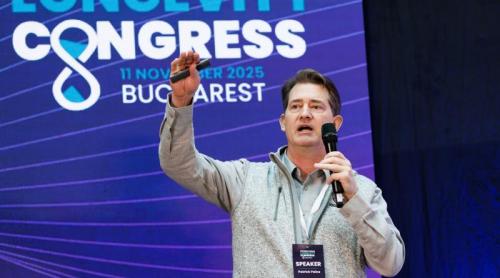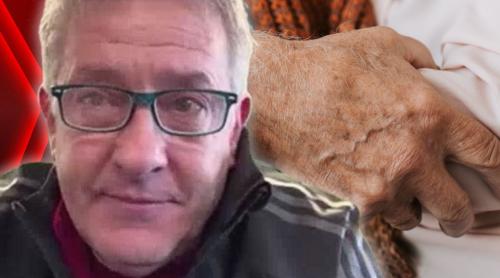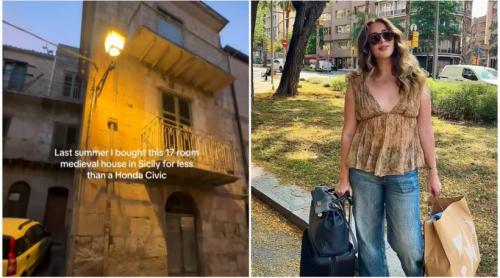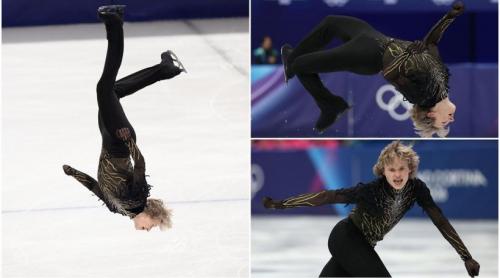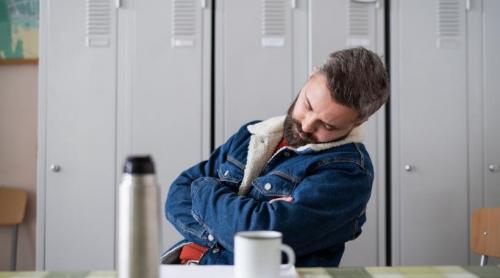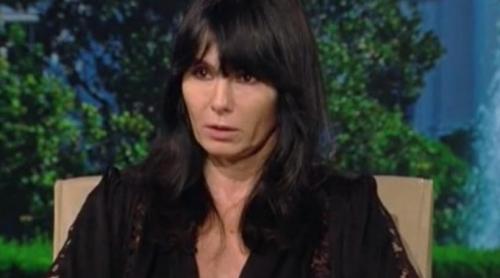
Esteban Castro Fernandez is the OLAF representative in Romania since March this year. His knowledge about Romania, however, dates back in 1995, when he studied extensively our country. "Even before coming to Romania I had been interested in issues related to the European Union, its expansion, and Romania in particular. Donât ask me why. I had no particular reason for it. Hence, at the end of my studies, I wrote a dissertation on the transition process in Romania and I furthered my study into the matter ever since.
I applied for a position with the Delegation and probably due to my studies I was accepted. I visited Romania for the first time in November 2000, one day ahead of Romaniaâs national day. I arrived on a Thursday and spend the very long week-end off by myself, taking long walks and having first degree encounters with packs of your famous stray dogs."Jurnalul National: Did you travel alone to Romania?
Esteban Castro Fernandez: Yes. I had no friends here, I knew no one. I spent two years here, and then I went back to Brussels, only to return in March 2005. This time it was easier for me to consider a new position: I already spent two very pleasant years in Romania and I made a lot of friends.
When you are a newcomer to any city it is a little bit difficult in the beginning. But one adapts according to oneâs own abilities. I managed to slowly but surely built a network of friends and acquaintances which always make the time fly by.
JN: How long did it take till you felt that time was not crawling any longer, but flying by?
ECF: I did not take very long. That was due to the fact that you, Romanians, are Latin people, as the Spanish are. So, to me, it was easier to adapt, I guess, than it is to people coming from radically different cultures. The people here are very direct and open.
JN: You commented something about the stray dogs â¦
ECF: I already heard stories about your stray dogs, long before arriving here and having my personal encounter with them. But one should wait to see for oneself, and not jump to conclusions. When one arrives to Romania expects not so good things; the countryâs image abroad is not so good. This is why I was so pleasantly surprised with Bucharest city, when I first saw it. It has a lot of green areas, large boulevards, particularly in the northern area, and also a lot of contrasting architectural styles. Once here and pacing the city one is left with a very good feeling; I saw this happing to my friends too, when visiting me here, and this is why I try to invite as many of them to Romania.
JN: How do you entertain yourself?
EFC: Beyond the regular kind of entertainment, like going to a cinema hall or dining out with friends, the cultural life in Romania provides a lot of opportunities. There are a lot of concerts in various bars, at the Athenaeum, at the Opera House ... I believe Bucharest is in now way lagging behind Brussels in that respect. It is harder for me to follow a play, since I do not know Romanian language, but more and more people are speaking Spanish, due to the success of the telenovelas in Romania.
JN: How did you manage to get used to the food?
EFC: I find it very interesting and tasty and with a lot of fragrances. For instance, the fruits and the vegetables really taste like fruits and vegetables, which is not the case in Spain or Belgium. It is also interesting that your dishes are very similar with those of your neighbors in the Balkan region. I like all of them: the rolled cabbage, the stew, the zacusca svegetables disht, as I like the wines too, particularly the white wines. I also tried the brandies, like tzuica splum spiritt, though I am not so keen for high spirits, not even when they are Spanish made.
JN: In what ways is it different to be a foreigner in Brussels from being one in Bucharest?
EFC: There are a lot of differences. The every day life is more or less the same, yet, there are a few exceptions. For instance, people here may look at first a little bit suspicious at you, but after you gain their trust you get attached to them, and they get attached to you. It is difficult to communicate, though, since few people speak English here, as compared to those in Brussels. Still, if you try speaking Romanian, they will try speaking English too.
What amazes me is that the homeless people detect that I am a foreigner and follow me for hundreds of meters begging for money in several languages. Joke aside, Romania and Romanians alike are very surprising: they are warm, accessible, easy to talk to, work and be with.
JN: You are here to stay for another two or three years. What will you miss more from your country?
EFC: I already miss my two dogs, that I adopted from Romania, my first time around here. I also miss the sea and the sea-food, which tastes differently in Spain. The good side of this is that I will have time to improve my knowledge of Romanian language.
JN: Which was the first Romanian word you heard?
EFC: "Imediat", which means "right away", but it is used in a funny way, because, in fact, it signals that it will be a while till you will get the service you requested. Much like the Spanish "Magnana, magnana", which literally means tomorrow, and reads: "Forget about it." This is what the Romanian "imediat" actually means..
JN: What is it you will miss when you will leave Romania?
EFC: I will miss the seasons; I believe you are one of the few countries which still have a clear definition of each season. I will miss the Romanian life style: you are so Latin, so full of ego, which is familiar to me; I will miss the contrasts. I traveled a lot, though not as much as I would have wanted. We have our own contrasting things in Spain, like the bull fights and the flamenco, but you have your Dracula, your landscape, your mountains, and your hills, and your monasteries I still have to visit.
Citește pe Antena3.ro


